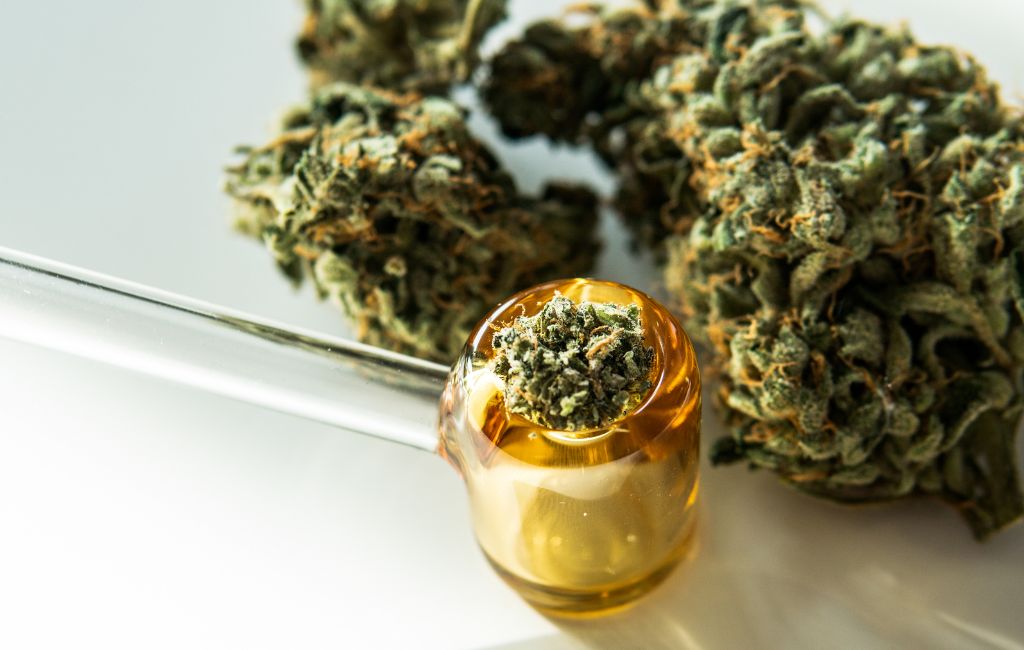Exploring the Benefits of THCa Flower as Dietary Supplement
In recent years, the interest in cannabis and its derivatives has surged, leading to a deeper understanding of its various components. One such component that has gained attention is THCa, or tetrahydrocannabinolic acid. Unlike its more famous counterpart THC, THCa is non-psychoactive, making it an appealing option for those seeking the potential health benefits of cannabis without the high. This article delves into the benefits of THCa flower as dietary supplement, supported by research and real-world examples.
Understanding THCa: The Basics
THCa is a cannabinoid found in raw and live cannabis plants. It is the precursor to THC, the compound responsible for the psychoactive effects of cannabis. When cannabis is heated through smoking, vaping, or cooking, THCa is converted into THC. However, when consumed in its raw form, THCa does not produce any psychoactive effects, allowing users to experience its potential health benefits without altering their mental state.
Potential Health Benefits of THCa
Research into THCa is still in its early stages, but preliminary studies and anecdotal evidence suggest several potential health benefits:
- Anti-Inflammatory Properties: THCa has shown promise in reducing inflammation, which can be beneficial for individuals with conditions such as arthritis and inflammatory bowel disease.
- Neuroprotective Effects: Some studies suggest that THCa may help protect brain cells, potentially offering benefits for neurodegenerative diseases like Alzheimer’s and Parkinson’s.
- Anti-Emetic Properties: THCa may help reduce nausea and vomiting, making it a potential option for those undergoing chemotherapy or suffering from chronic nausea.
- Appetite Stimulation: While THC is known for increasing appetite, THCa may also play a role in stimulating hunger, which can be beneficial for individuals with appetite loss due to medical conditions.
THCa in the Diet: How to Incorporate It
Incorporating THCa into one’s diet can be done in several ways. Here are some popular methods:
- Raw Cannabis Juicing: Juicing raw cannabis leaves and flowers is a popular method to consume THCa. This method preserves the cannabinoid in its natural form, allowing users to benefit from its properties without psychoactive effects.
- THCa Tinctures: Tinctures made from raw cannabis can be added to foods or beverages, providing a convenient way to incorporate THCa into the diet.
- THCa Capsules: For those who prefer a more traditional supplement form, THCa capsules are available and can be taken as part of a daily routine.
Case Studies and Real-World Examples
Several individuals have reported positive experiences with THCa as a dietary supplement. For instance, a case study involving a patient with chronic arthritis found that incorporating THCa into their diet led to a significant reduction in pain and inflammation. Another example includes a cancer patient who used THCa to manage chemotherapy-induced nausea, resulting in improved appetite and overall well-being.
Scientific Research and Statistics
While research on THCa is still developing, some studies have provided promising results. A study published in the “Journal of Neuroimmune Pharmacology” highlighted THCa’s potential anti-inflammatory effects, suggesting it could be a valuable addition to treatments for inflammatory conditions. Additionally, a survey conducted by a cannabis research organization found that 70% of participants who used THCa reported improvements in their symptoms, particularly in pain management and appetite stimulation.
Considerations and Precautions
While THCa offers potential benefits, it is important to approach its use with caution. Consulting with a healthcare professional before incorporating THCa into the diet is advisable, especially for individuals with pre-existing medical conditions or those taking other medications. Additionally, sourcing THCa from reputable suppliers ensures the quality and safety of the product.
Conclusion
THCa flower presents an intriguing option for those seeking the health benefits of cannabis without the psychoactive effects. With its potential anti-inflammatory, neuroprotective, and anti-emetic properties, THCa holds promise as a dietary supplement. As research continues to unfold, more individuals may find value in incorporating THCa into their wellness routines. By understanding its benefits and methods of consumption, individuals can make informed decisions about whether THCa is a suitable addition to their diet.





